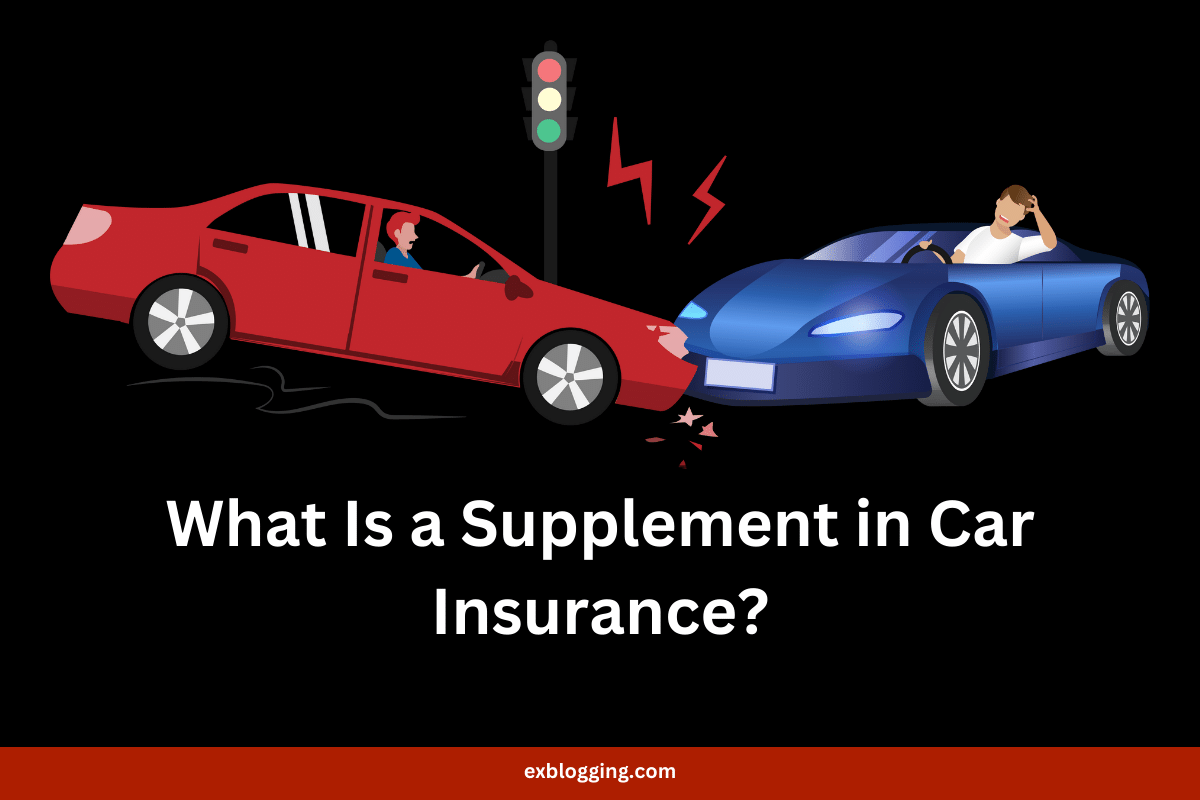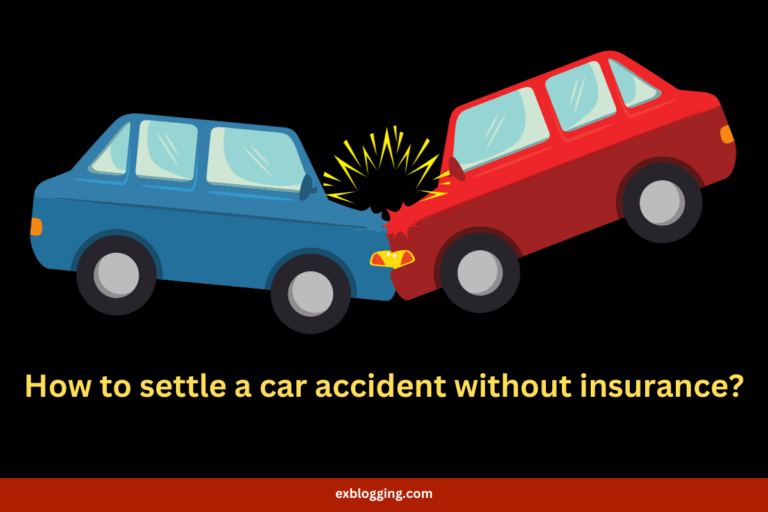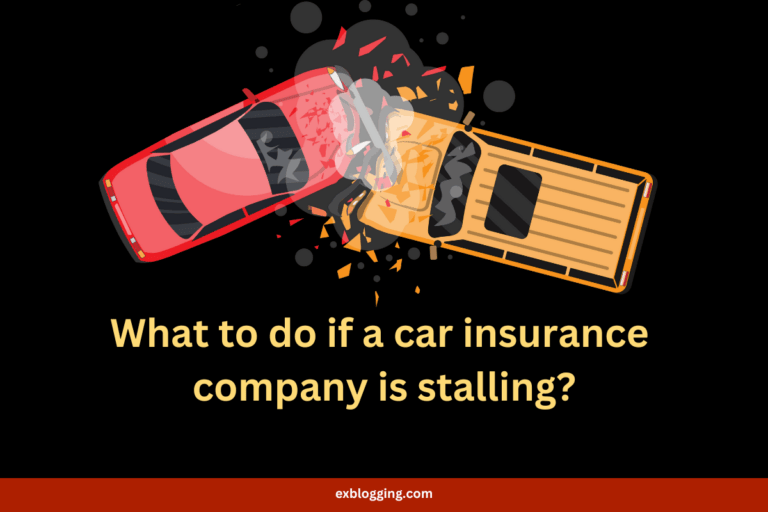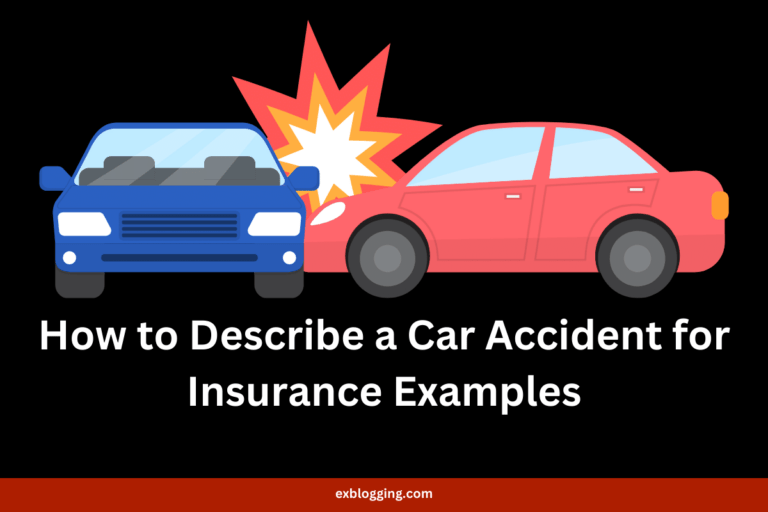What Is a Supplement in Car Insurance?
What Is a Supplement in Car Insurance?: Supplemental car insurance is like adding extra layers of protection to your basic coverage, allowing you to tailor it to match your unique needs. For instance, if you want coverage in case you’re in an accident with someone who doesn’t have insurance or enough coverage (uninsured/underinsured motorist coverage), or if you want financial support for medical expenses after an accident (personal injury protection), or even coverage for non-collision events like theft or natural disasters (comprehensive coverage), supplemental insurance has got you covered. It’s like having a personalized safety net for the specific situations that matter most to you on the road.
There are different kinds of extra car insurance options available, letting you tailor your coverage to your specific needs. While you need a minimum level of auto insurance by law, it might not cover all costs for car damages and repairs. It’s a good idea to look into various supplemental insurance types or talk to an insurance agent to figure out which ones make the most sense for your situation.
What is supplement car insurance? And What is supplement car insurance coverage?

Supplemental car insurance goes beyond your standard policy, offering extra coverage to meet specific needs. While liability insurance is a legal requirement in most U.S. states, safeguarding against damages you may cause to other drivers in an accident, may not provide comprehensive coverage for many drivers. This is where supplemental car insurance becomes crucial.
To ensure your own damages are covered in the event of an accident or other incidents, opting for supplemental coverage is a smart choice. It allows you to tailor your insurance protection to match your unique driving circumstances and provides an added layer of financial security.
Bridging Safety Gaps: The Heartache of Uninsured Motorist Realities
Uninsured/underinsured motorist insurance might not seem necessary, as most states mandate liability insurance. Unfortunately, some drivers either cannot or choose not to carry even the minimum required insurance. Additionally, those who opt for only the minimum liability coverage might find it insufficient to cover all damages and medical bills in case of an accident.
Deciding to add this coverage to your policy requires careful consideration, weighing the potential risk of being involved in an accident with a driver who lacks the means to pay for damages or lacks adequate insurance. In such cases, if the at-fault party cannot cover the costs, the victim may end up having to pay for repair and medical bills from their own pocket.
Safeguarding Lives: The Vital Shield of Personal Injury Protection Insurance in Every Journey
Personal Injury Protection insurance caters to the medical needs of both the driver and passengers, irrespective of fault in an accident. It proves crucial for those lacking health insurance or with limited plans. Although general health insurance offers broader coverage than this auto insurance type, drivers with comprehensive health coverage can leverage it to save money, opting out of personal injury protection insurance.
Drive Fearlessly: Non-Owned Auto Insurance, Your Guardian Beyond Ownership
Even if you don’t own a car, there’s coverage to protect you – a valuable shield, especially for frequent renters. This coverage ensures security for drivers in rental cars, offering protection against damages to other vehicles, passengers, and even pedestrians. When you rent a car, the agency typically pitches car rental insurance. Generally, your personal collision and comprehensive coverage extend to rental vehicles.
However, for those without comprehensive coverage, purchasing the rental car company’s insurance can become expensive, particularly for frequent renters. Non-owned auto insurance emerges as a cost-effective solution, saving substantial money. This insurance option can include vital coverages such as uninsured/underinsured motorists and personal injury protection.
Pet Protection Insurance: Nurturing Love and Security for Furry Family Members on Every Drive
Embracing Furry Companions: Recognizing the bond between drivers and their pets, a new coverage option emerges to safeguard these cherished family members. As many consider their pets akin to children, insurers understand the importance of treating them as part of the family. In the event of a collision, this coverage, seamlessly integrated into collision coverage, extends financial support up to a specified limit for medication and vet bills. Remarkably, this invaluable protection comes at no additional cost, reinforcing the idea that pets are truly part of the driving family.
Complete Protection: Depths of Comprehensive and Collision Insurance
Beyond Legal Requirements, Extra Protection for Your Vehicle. While not mandated by law, finance companies may necessitate these insurances during car financing. Comprehensive insurance addresses non-collision damages, encompassing various potential risks. On the other hand, Collision insurance specifically covers damages resulting from collisions.
However, for older cars with significant depreciation, the cost of maintaining these insurances might exceed potential payouts in case of an accident. Insurance providers typically compensate based on the car’s current market value, determined by a specific formula, regardless of the actual damages. Owners of older vehicles may find it more economical to set aside funds for potential repairs or future vehicle purchases.
Enhancing Financial Security: Understanding the Importance of Supplementary Liability Coverage
Liability coverage is a fundamental form of insurance, mandated by laws across almost every state in the nation. While it provides a basic level of protection, the required amount is often relatively low. Considering the potential financial risks, it is prudent to explore supplementary coverage options.
Supplemental insurance, in this context, refers to increasing the limits of liability coverage beyond the mandatory minimum. This is particularly relevant for individuals with substantial assets to safeguard. In the unfortunate event of an accident where someone is deemed at fault, they become financially responsible for the incurred costs, irrespective of insurance coverage.
To avoid the possibility of having to liquidate assets to cover expenses such as medical bills or property damage, it is wise to contemplate obtaining additional liability coverage with higher limits. This extra layer of protection ensures that individuals with significant assets have ample coverage to handle potential liabilities arising from accidents for a more secure financial future.
Unlock Peace of Mind: Affordable Roadside & Car Rental Benefits
Affordable options like car rental benefits, towing, and roadside assistance offer valuable services to drivers without breaking the bank. Roadside assistance becomes crucial when a car won’t start or breaks down on the road, requiring towing to a dealership or mechanic.
Car rental reimbursement is another budget-friendly option, providing a temporary car for the policyholder while their own vehicle undergoes repairs. Typically costing only a few dollars monthly, this coverage is a cost-effective solution compared to the $20 to $30 daily rental fees. In some cases, a deductible might apply before the insurance company approves the rental car reimbursement. Despite this, having this coverage can lead to significant savings if a driver’s car is in the repair shop for an extended period.
How does basic insurance differ from supplemental insurance?
Wondering about the contrast between basic and supplemental employee life insurance? Simply put, basic group life insurance is a cost-effective or even free policy from your employer’s benefits, while supplemental life insurance allows you to enhance that coverage by paying an extra premium.
Frequently Asked Questions About Supplement Car Insurance
What protections are included in supplemental car insurance?
Supplemental Liability Insurance protects you from injuries to other drivers and their vehicles. While rental car companies usually have third-party liability as required by most states, these often meet only the minimum limits, which might be insufficient for more serious accidents. It’s important to consider additional coverage for greater protection.
What does supplemental liability protection for rental cars cover?
Supplemental Liability Insurance (SLI) covers you and authorized operators (as described in the Agreement) from claims by third parties for injuries, death, or property damage resulting from the permitted use of a Budget rental car, as outlined in the Agreement.
Should you consider getting supplemental insurance?
Considering additional insurance coverage might be a good choice if you: have a family history of specific diseases like cancer, heart disease, or stroke, and want extra financial security for unforeseen accidents or injuries.
What makes people decide to get supplemental insurance?
Supplemental health plans cover costs that regular health insurance may not, including dental, vision, disability, and long-term care. For instance, a supplemental policy like critical illness insurance can provide a one-time payment if you’re diagnosed with specific medical conditions.
Is additional insurance necessary when renting a car in the USA?
Yes, You can utilize your personal car insurance for a rental car during personal travel, and your coverage limits and deductibles will be in effect. However, if your trip is for business purposes, your personal auto insurance may not cover damage or injuries unless you have commercial coverage.
Insights into how supplemental insurance works
Supplemental insurance is an extra insurance plan that adds to your main health insurance. It includes different policies you can get from your employer or buy independently. One example is life insurance, which gives a payout to your loved ones if something happens to you.
What is the average cost of a supplemental insurance plan?
For 2024, the average monthly cost of a Medicare Supplement plan is $137. However, prices can range significantly, typically falling between $50 and $200 per month.
Who could gain advantages from supplemental insurance?
– Assists with medical expenses
– Individuals with persistent health issues
– Those with a higher risk of injury, like athletes
– Older individuals or those prone to specific illnesses
– Those wanting to be ready for the expenses linked to aging.
How does supplemental insurance differ from secondary insurance?
Secondary insurance works alongside your main medical plan to fill in gaps in cost or services. Supplemental health plans, such as vision, dental, and cancer insurance, can cover care and services that are usually not included in your regular medical plan.
Is supplemental insurance considered primary or secondary?
Every coverage type is referred to as a “payer.” When there are multiple payers, “coordination of benefits” rules determine the primary payer, which settles its obligations first. Afterward, you or your healthcare provider submits the remaining amount to the “secondary payer” (supplemental payer) for payment.
What does the term “supplement” mean in the context of car repairs?
Supplements happen when there’s hidden or unexpected damage inside the vehicle that wasn’t noticed during the initial estimate. These are updates to the first cost estimate and need the customer’s extra approval before repairs can go ahead.
Explore More: Discover related Topics for Further Insights and Guidance:
When is a Car a Write Off Insurance?
What if car insurance doesn’t pay enough?
How to Settle a Car Accident Without Insurance?
How to Describe a Car Accident for Insurance Examples






